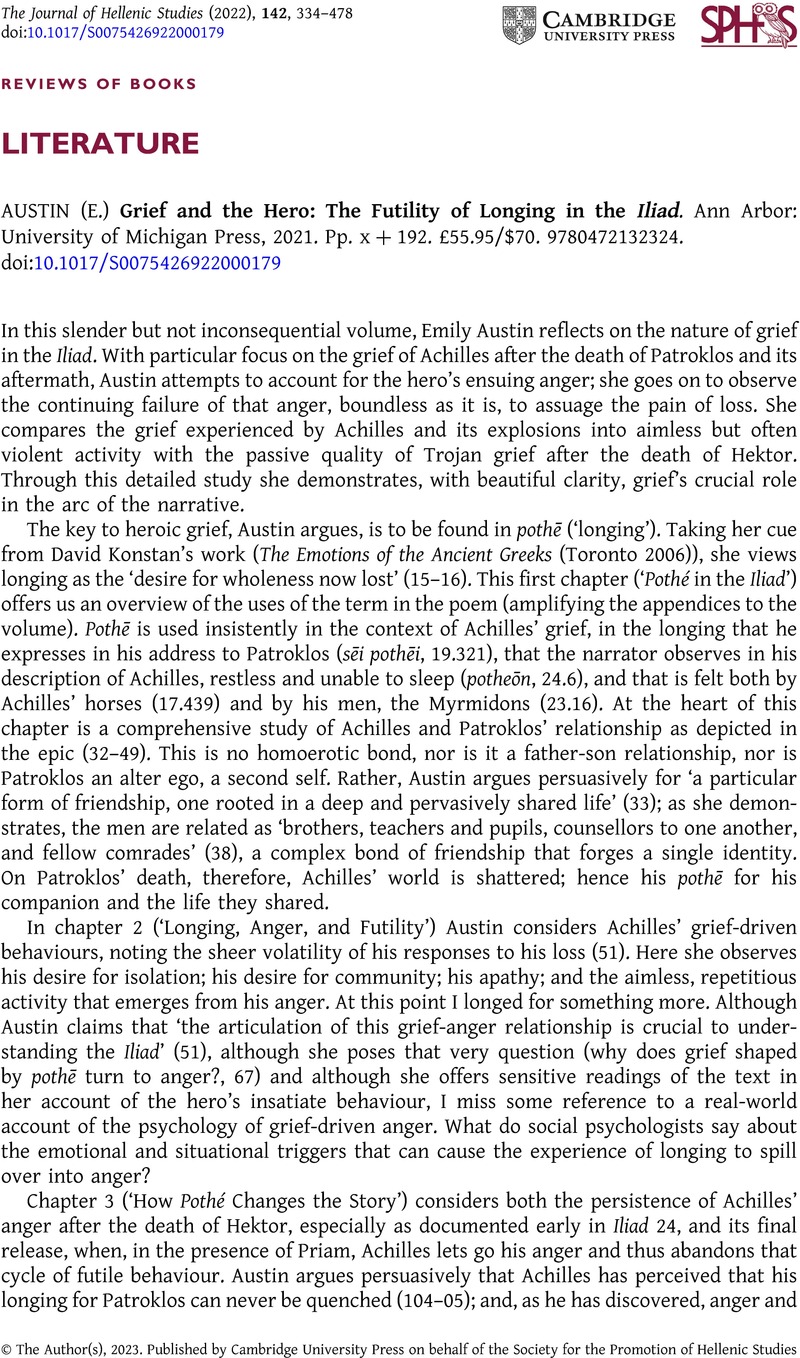No CrossRef data available.
Article contents
(E.) AUSTIN Grief and the Hero: The Futility of Longing in the Iliad. Ann Arbor: University of Michigan Press, 2021. Pp. x + 192. £55.95/$70. 9780472132324.
Review products
(E.) AUSTIN Grief and the Hero: The Futility of Longing in the Iliad. Ann Arbor: University of Michigan Press, 2021. Pp. x + 192. £55.95/$70. 9780472132324.
Part of:
Literature
Published online by Cambridge University Press: 11 April 2023
Abstract
An abstract is not available for this content so a preview has been provided. Please use the Get access link above for information on how to access this content.

- Type
- Reviews of Books: Literature
- Information
- Copyright
- © The Author(s), 2023. Published by Cambridge University Press on behalf of the Society for the Promotion of Hellenic Studies


